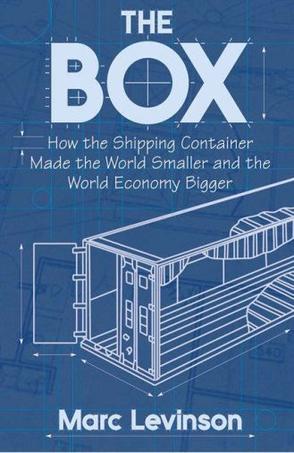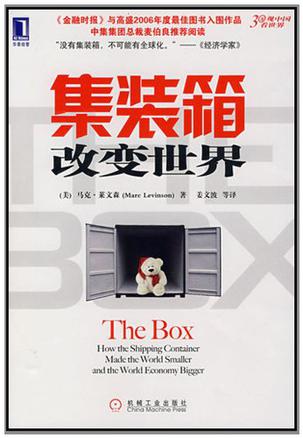欢迎来到相识电子书!
标签:集装箱
-
The Box
In April 1956, a refitted oil tanker carried fifty-eight shipping containers from Newark to Houston. From that modest beginning, container shipping developed into a huge industry that made the boom in global trade possible. The Box tells the dramatic story of the container's creation, the decade of struggle before it was widely adopted, and the sweeping economic consequences of the sharp fall in transportation costs that containerization brought about. Published on the fiftieth anniversary of the first container voyage, this is the first comprehensive history of the shipping container. It recounts how the drive and imagination of an iconoclastic entrepreneur, Malcom McLean, turned containerization from an impractical idea into a massive industry that slashed the cost of transporting goods around the world. But the container didn't just happen. Its adoption required huge sums of money, both from private investors and from ports that aspired to be on the leading edge of a new technology. It required years of high-stakes bargaining with two of the titans of organized labor, Harry Bridges and Teddy Gleason, as well as delicate negotiations on standards that made it possible for almost any container to travel on any truck or train or ship. Ultimately, it took McLean's success in supplying U.S. forces in Vietnam to persuade the world of the container's potential. Drawing on previously neglected sources, economist Marc Levinson shows how the container transformed economic geography, devastating traditional ports such as New York and London and fueling the growth of previously obscure ones, such as Oakland. By making shipping so cheap that industry could locate factories far from its customers, the container paved the way for Asia to become the world's workshop and brought consumers a previously unimaginable variety of low-cost products from around the globe. -
集装箱改变世界
《金融时报》与高盛2006年度最佳图书作品 “没有集装箱,不可能有全球化。”——《经济学家》 <经济学家>杂志说:"没有集装箱,就没有全球化。"在莱文森看来,经济全球化的基础就是现代运输体系,而一个高度自动化、低成本和低复杂性的货物运输系统的核心就是集装箱。在1956年集装箱出现之前,人们很难想象美国的沃尔玛能够遍地开花。而在集装箱出现之后,以至于某件东半球的产品运至纽约销售,远比在纽约近郊生产该产品更划算。毫不起眼的集装箱降低了货物运输的成本,实现了货物运输的标准化,以此为基础逐步建立全球范围内的船舶、港口、航线、公路、中转站、桥梁、隧道、多式联运相配套的物流系统,世界经济形态因此而改变。 这本书分析了不起眼的航运集装箱所取得的出人意料的成功.以及这一发明如何让全球商业进发出潜力。 ——《金融时报》与高盛2006年度最佳图书评委 中国的集装箱产销量已14年蝉联世界第一。集装箱作为现代化的运输工具在国际贸易和世界经济中发挥了不可或缺的作用.想了解集装箱化.请阅读这本经典史吧。——中国集装箱工业协会 这是一本引人入胜的好书……给我们讲述了一项具有划时代意义的经典技术——在集装箱登上历史舞台的前后.整个世界的运转方式发生了根本变化。——《纽约时报》 就像今天大量的国际货物一样,这本书来得“正是时候”……这是一篇写给集装箱的赞美诗,歌颂了它给我们生活带来的好处。集装箱推动了贸易,加快了货物的交付,降低了商品的价格,拓宽了商品的供给。对一个如此简单、沉默寡言的东西来说,做到这些已经很不错了。——《华尔街日报》 第1章 集装箱造就的世界…1 第2章 码头上的拥堵…18 第3章 卡车司机…41 第4章 系统…62 第5章 纽约的港口保卫战…87 第6章 工会的分裂…117 第7章 制定标准…148 第8章 起飞…173 第9章 越南…..196 第10章 暴风雨中的港口…217 第11章 繁荣与萧条…242 第12章 “大规模”情结…263 第13章 发货人的反击…279 第14章 及时生产…301
热门标签
下载排行榜
- 1 梦的解析:最佳译本
- 2 李鸿章全传
- 3 淡定的智慧
- 4 心理操控术
- 5 哈佛口才课
- 6 俗世奇人
- 7 日瓦戈医生
- 8 笑死你的逻辑学
- 9 历史老师没教过的历史
- 10 1分钟和陌生人成为朋友


